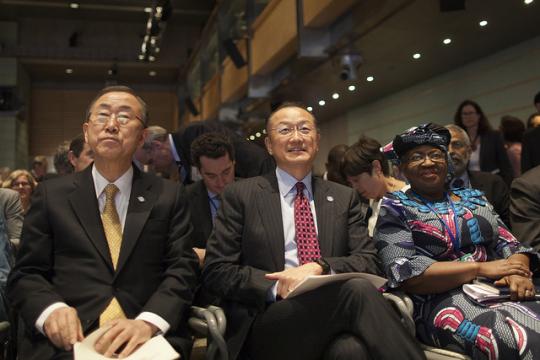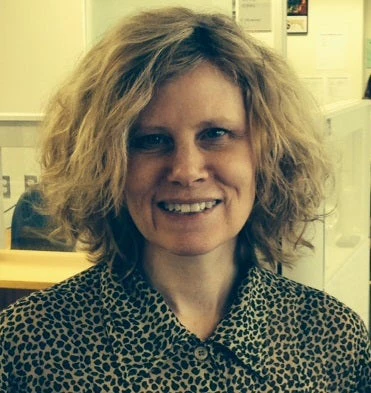
With people around the world struggling to afford health care, countries as diverse as Myanmar, Nigeria, Peru, Senegal, Kenya, South Africa, and the Philippines are warming to the idea of universal health coverage. This growing momentum was the subject of a high-profile Spring Meetings event examining the case for universal health coverage and the steps to get there.
Some 70 governments have asked the United Nations for help to achieve universal health coverage, said Secretary-General Ban Ki-moon. He spoke at Toward Universal Health Coverage by 2030, co-sponsored by the World Bank and World Health Organization and moderated by the WHO Director-General Margaret Chan.
“We can celebrate the fact that virtually all mothers in Sweden survive childbirth,” Ban said. “But in South Sudan, one in seven pregnant women will not live to see their babies. Addressing this inequality is a matter of health and human rights … To secure health, we have to take preventive action. The concept of universal health coverage could be an important catalyst.”
Ban was part of a panel including World Bank Group President Jim Yong Kim; Harvard University President Emeritus Lawrence H. Summers; Nigeria Minister of Finance Ngozi Okonjo-Iweala; and former New York City Mayor Michael Bloomberg, now the U.N. Special Envoy for Cities and Climate.
“Ministers of finance should take heed because the case can be rooted strongly in economics,” said Summers, a member of the Lancet Commission on Investing in Health.
The commission’s report lays out a strategy for achieving universal health coverage globally that Summers described as costing about 1 percent of the extra income that would be available from economic growth between now and 2035. “Our estimates show that in low-income countries, the payoff from this investment … is 20 to 1 ... and 9 to 1 in middle-income countries,” said Summers.
“This is probably the single most important area for productive investment on behalf of mankind,” he added. “There needs to be an awareness of the stakes involved..”
Kim said “we cannot take our eye off” the Millennium Development Goals on health, but there will be a lot of unfinished business after the goals’ deadline of 2015. The development landscape is also changing, he said. About half of low-income countries are expected to become middle-income by 2030, and the incidence of chronic diseases such as diabetes is rising.
“We need a bold health goal for 2030 that encompasses both the health outcomes we want and the path to get us there,” said Kim. “We have a growing body of evidence that the most equitable and sustainable way to achieve the health outcomes we all want is through universal health coverage.”
Okonjo-Iweala said finance ministers in developing countries such as her own, Nigeria, understand the economic case for universal health care. “The question is, how do we finance it?” she said. And she noted that finance ministers are forced to balance competing priorities, such as education and health, both of which are seen as strong investments in a country’s future.
Bloomberg said policies can make a difference, but spending doesn’t necessarily mean better results.
“There is a lot of evidence we waste money,” he said. The United States spends about $7,500 per capita per year on health care, while Western Europe spends $3,300, and life expectancy in Europe is higher. Banning smoking from public places and raising taxes on cigarettes, on the other hand, has had a “dramatic” effect on the number of people smoking in New York, he said. “We know what to do. We needed some leadership from the top. That’s what government can provide,” he said.
The half-day event, webcast in Arabic, English, French, and Spanish and followed on Twitter with #UHC2030, also discussed the types of investments needed to dramatically improve health care in developing countries.
Related Links:
Replay the event
President Kim's remarks


Join the Conversation